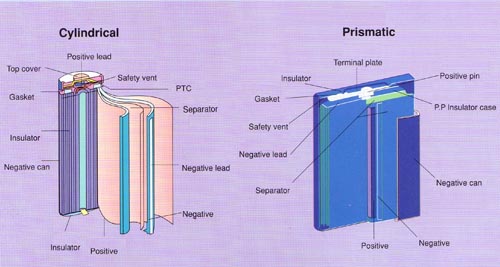To get all the manufacturers to agree on standards helps to reduce costs in the entire industry, since it would lead to that some components being mass produced at a larger scale than before. Intel now puts two different types of battery standards on the table.
One of the new standards; 16650 cylindrical batteries is as the name implies round batteries, that right now is only available to Japanese Sanyo and Chinese BAK. The battery measures just over 16 mm in diameter, 65 mm in height, it weighs 40 grams and has a nominal capacity of 2 100 mAh. While this is the most common type we assume that smaller models that also should fit into ultrabooks should exist. An advantage with round batteries that builds more in height is that they free up more space in the ultra compact computers that you could use to other components.
The computer manufacturers of today is not only positive to this battery type, since only two actors manufacture it and therefore controls the market. Another source of concern is that is not likely that BAK will be approved by the manufacturers in an ongoing cerfication process. Acer on the other hand should already have started using 16550 cylindrical batteries for some time in their ultrabooks, since they have started a long partnership with Sanyo.
 Intel wants all partners to agree on a standard to lower the prices on ultrabooks
Intel wants all partners to agree on a standard to lower the prices on ultrabooks
The other proposal, that recieved a warmer welcome is prismatic Lithium-ion batteries. The advantage with those is that their dimensions is 60 x 80 mm and has a thickness between 5 – 6 mm depending on the model, at the same time there is more actors that manufacture the battery type. The issue here is that they are not manufactured in high enough capacities yet and that the manufacturers still is going through a certification process for this type of batteries. Although Lenovo should already have started using these batteries in their IdeaPad 530, but only in limited volumes.
We have previously heard that Intel has wanted to push through a battery standard for ultrabooks and it looks like the prismatic lithium-ion batteries will get the price. But they are not expected to begin being used at a larger scale until 2013. We see positive on that the manufacturers agrees on a standard because it makes it easier to replace components by yourself if something brakes. The negative aspect though is that they get less possibilities to stand out in the crowd of competitors.
Source: Digitimes





















Leave a Reply